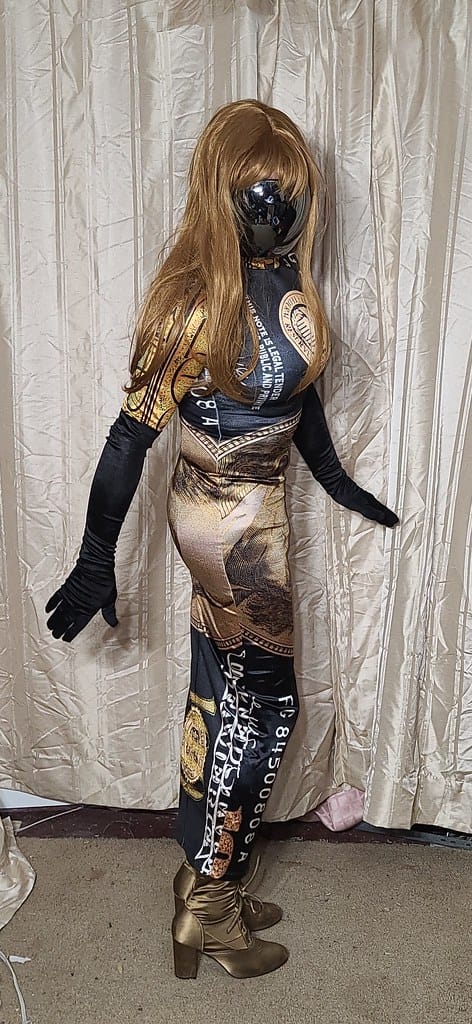Shadow Campaigns: How Dark Money Is Secretly Bankrolling Democratic Social Media Stars
A growing web of undisclosed financial relationships between anonymous donors and prominent Democratic digital influencers is raising serious questions about transparency in political messaging, as investigations reveal coordinated efforts to shape public opinion through seemingly independent voices.
The Hidden Network Exposed
Recent financial disclosures and investigative reporting have uncovered a sophisticated dark money operation funneling hundreds of thousands of dollars to high-profile social media personalities and content creators who promote Democratic causes and candidates. These influencers, boasting millions of combined followers across platforms like TikTok, Instagram, and YouTube, have been receiving payments through a complex network of intermediary organizations that obscure the original funding sources.
The scheme operates through what experts describe as a "digital influence laundering" system, where wealthy donors contribute to 501(c)(4) organizations that aren't required to disclose their contributors. These groups then distribute funds to media companies and talent agencies, which ultimately compensate influencers for content that appears organic but follows carefully crafted messaging strategies.
Following the Money Trail
Financial records obtained through investigative efforts reveal that at least $2.3 million has flowed through this network over the past 18 months. The funding has supported content creators who regularly produce videos and posts about climate change, voting rights, economic inequality, and other progressive policy issues—often without any disclosure of the financial relationships involved.
One prominent TikTok creator with over 800,000 followers received $45,000 through this network while producing content critical of fossil fuel companies and promoting renewable energy initiatives. Another Instagram influencer, known for political commentary to her 1.2 million followers, received $32,000 for posts supporting voting access legislation, according to payment records.
These revelations mirror similar concerns raised about conservative influencers in recent years, suggesting that undisclosed political financing has become a bipartisan problem in the digital age.
The Transparency Gap
Legal Loopholes Enable Secrecy
The current regulatory framework creates significant blind spots in political advertising oversight. While traditional media buys require disclosure of funding sources, social media content often falls into gray areas that allow for anonymized financing.
Campaign finance experts note that existing Federal Election Commission rules weren't designed for the influencer economy, creating opportunities for political actors to circumvent disclosure requirements that apply to conventional advertising.
Platform Policies Fall Short
Major social media platforms have implemented varying policies requiring disclosure of paid political content, but enforcement remains inconsistent. TikTok requires creators to label paid partnerships, while Instagram's disclosure rules often rely on hashtags that can be easily overlooked by audiences.
However, these platform policies typically focus on direct brand sponsorships rather than the complex funding arrangements now being used to support political content creation.
Broader Implications for Democratic Discourse
This dark money influence operation represents a concerning evolution in political communication, where the line between authentic grassroots advocacy and manufactured messaging becomes increasingly blurred. When audiences believe they're consuming independent political commentary but are actually viewing content shaped by anonymous financial interests, it undermines informed democratic participation.
The practice also raises questions about the integrity of social media as a space for genuine political discourse. If major voices in online political conversations are being secretly funded by undisclosed donors, it distorts the perceived authenticity that makes influencer content particularly powerful with younger audiences.
Campaign finance reform advocates argue that this case demonstrates the urgent need for updated regulations that address digital-age political communication, including requirements for clear disclosure of all funding relationships in political content, regardless of the platform or format.
The Path Forward
The exposure of this dark money network highlights critical gaps in political transparency that lawmakers and regulators must address. As digital platforms become increasingly central to political communication, the public deserves to know who is funding the messages they consume.
Moving forward, meaningful reform will require updated disclosure requirements that account for the realities of influencer marketing, stronger enforcement mechanisms from social media platforms, and potentially new categories of regulated political communication that capture the nuanced ways modern campaigns attempt to influence public opinion.
Until these systemic changes occur, voters must remain vigilant about the hidden financial interests that may be shaping the political content they encounter online, recognizing that even seemingly authentic voices may be amplified by undisclosed political investments.
